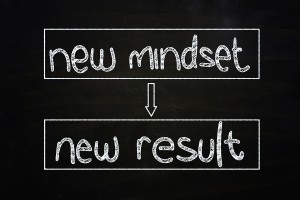Have you noticed what a catchword “mindfulness” has become? You see it everywhere these days.
A range of books and magazines are published every year on the topic of mindfulness. Various sources, such as TIME Magazine, have reported on the “Mindful Revolution.” Luxury resorts from Arizona to Bali promote the concepts of relaxation, meditation, and mindfulness.
Doubters call mindfulness a “popular obsession.” But there’s actually a lot of science behind it — not to mention health benefits. Mindfulness can lower your blood pressure, strengthen your immune system, and decrease anxiety.
As a form of meditation, mindfulness actually gives your brain a workout.
Except… what exactly is mindfulness? What does it mean to be mindful?
And can mindfulness help you be a more effective writer?
Let’s take a closer look.
What Is Mindfulness and How Can It Help Writers?
The simplest explanation is this: Mindfulness is the ability to focus your attention on the thing that you are doing while you are doing it.
Sounds almost too basic… but in our chronically-stressed, digitally-dependent, multi-tasking culture, that’s really hard to do.
Have you ever sat down at your computer, intending to start on a project, yet somehow you open Facebook instead of a blank Word document?
Or before you can blink, your email inbox is staring back at you?
I’ve had days where I sit down at my desk with a plan… only to be derailed by my unconsciously automatic actions.
Maybe you do it, too. Could be you open all your social media profiles without realizing it, or read emails when you should be writing. Or snack when you’re not hungry (guilty on this end).
A lot of us — and I’m no different — confuse multitasking with fragmented action. But if you’re keen to have a well-paid writing career, you shouldn’t confuse motion with achievement.
There are a lot of things we freelancers can do to stay occupied so it feels like we’re moving toward our goals. But really, it’s just busywork. Like spending most of your time on email, social media, or studying writing programs.
All those things can help you become a better writer and research your craft… but if you’re not actually doing the writing and putting yourself out there, you won’t get anywhere. You won’t meet your goals. You’ll never make any progress.
Not only does mindfulness include being aware of your thoughts and your actions… it also means you do it without judgment. Being mindful is all about living in the moment. No rehashing of the past. No judgment.
I know what you’re thinking… HOW is that possible?
Because the standard dialogue in my head includes taunts like, “You still haven’t tackled that? You’re submitting that? You failed at that and you’ll fail at this too. You stink at getting organized. You…”
I could go on and on and on.
But here’s where mindfulness — and moving forward in your goals, and toward positive change — can help you become a more productive writer.
Picture yourself turning the page on your writing career. Literally imagine your writer’s life as an open book, and then turn the page. The new page is blank and unblemished. You have no failures on your shoulders. It’s like a free pass to move forward, and to set goals without judgment.
This is mindfulness in action: Being aware of what you want and doing so without judgment.
Of course, mindfulness does not include imagining the future. So how do you reconcile that with moving toward a writing goal?
Think of it as pre-goal prep work. Mindfulness quiets the worrier inside of you. It strengthens your resolve.
In a profound way, mindfulness makes you better equipped to handle the unknown.
How Can You Use Mindfulness to Be a More Effective Writer?
Here are some ways to make mindfulness part of your daily writing career.
Pick one of the following exercises to do for five minutes each day, and always before starting a writing project.
1. Breathe
Sit down, back straight, shoulders dropped. Take a deep breath. Focus on the sensation of air moving in and out of your body.
When random thoughts waft into your mind, acknowledge them, dismiss them, and remain focused on your breathing.
2. Journal
Journaling helps discard the harried thoughts of daily living. It brings peace and balance and wipes the slate of your mind clean.
3. Meditate
This is the most profound source of mindful balance. Daily practice makes you aware of the rhythm of life, and comfortable with your sense of self.
If you’re new to meditation, I highly recommend Dr. Annette Annechild’s meditation program for writers, Accessing the Writer Within. It’s currently being offered as a free gift from American Writers and Artists Institute.
Final Thoughts
If you approach each day with mindfulness, you’ll find it easier to pay attention to what’s really going on around you instead of drowning in the noise.
You’ll trust yourself more. With trust comes confidence. And with confidence comes action and the ability to be a more effective, productive writer.







